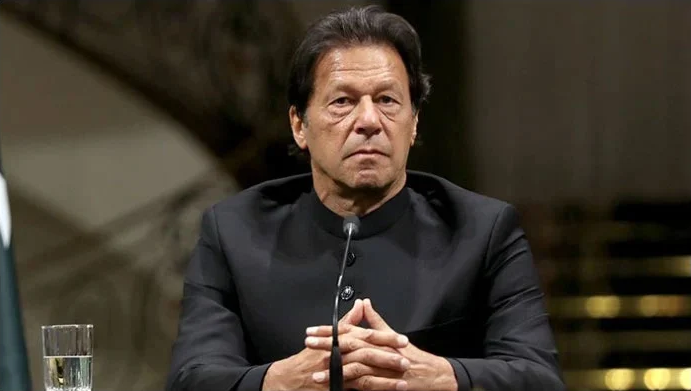Alwaght- Pakistani opposition legislators launched a no-confidence motion against Prime Minister Imran Khan in parliament on Monday hoping to oust Khan’s government amid accusations he has mismanaged the nation’s economy.
Local media reports said opposition leader Shehbaz Sharif on Monday tabled the no-confidence motion against Premier Khan in Pakistan's National Assembly, the lower house of the parliament.
"The prime minister ceases to hold his office after he has lost the confidence of this house," Sharif said.
The house will begin a debate on the motion on Thursday and a vote is to be held within seven days.
The opposition needs a simple majority to oust Khan, after which a new prime minister would be chosen by the parliament.
Khan needs 172 votes in the house of 342 to foil the bid. Some defections in Khan's ruling Pakistan Tehreek-i-Insaf (PTI) party and cracks in his coalition partners have made him short of the 172 votes, a simple majority, needed to hold on to power.
A united opposition is calling on him to step down. He has vowed to fight to stay put.
Khan has recently accused an unnamed "foreign power" - in a clear reference to the United States - of funding a "conspiracy" to topple his democratically-elected government.
Addressing a large rally in the capital Islamabad on Sunday, Khan said the "foreign power" sent millions of dollars to opposition parties to launch a no-confidence vote against him in the parliament.
Khan, who had formed a coalition government after winning the election in 2018, said he was the subject of a "foreign conspiracy" aimed at dislodging his government and that "funding was being channeled into Pakistan from abroad.”
The opposition and analysts say the prime minister has fallen out with the powerful military, which mostly determines who will rule, a charge both Khan and the military deny.
Pakistan faces a recurring economic crisis, with Khan's administration banking on the International Monetary Fund (IMF) to release the next tranche of a $6 billion rescue package to shore up dwindling foreign currency reserves.



























